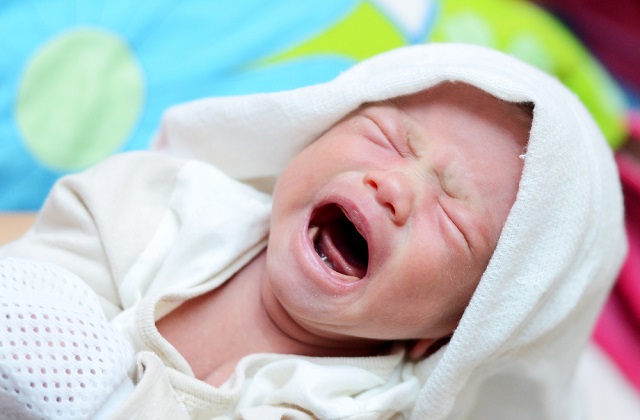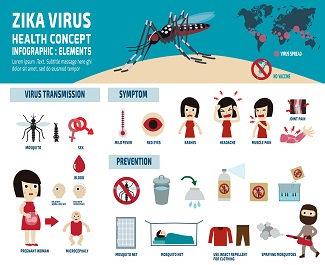Almost all babies get gas. It happens when air gets into their digestive tract, such as when they suck on bottles and swallow air. For some babies, it is normal for them to pass gas more than 10 times a day.
Gas usually does not mean anything is wrong, but it can make your baby uncomfortable.
Cause of gas in baby
Drinking too quickly
If the nipple on the bottle allows a fast flow of milk, or if the nursing mom has an overactive supply, the baby may end up gulping the milk down to keep up the flow, which can cause gas.
Drinking too slowly
If the flow of milk through the nipple is too slow, the baby may suck in extra air while drinking formula, this can also lead to gas pain.
Drinking formula with air bubbles
When you prepare formula milk for your baby, the air bubble may enter the milk when you shake it. The more you shake the formula, the more air bubbles enter the milk, which can result in a gassy baby.
Excessive crying
Babies tend to swallow air when they cry for an extended period of time. It is hard to tell if gas is causing their crying or if crying is causing their gas. Nevertheless, it is important to tend to a crying baby's needs quickly and calm them down in the best way possible.
Immature digestion
A baby’s gut is learning to process food, gas, and stool effectively, this may cause them to produce more gas than adults.
Ingesting gas-inducing foods
Baby gas can also happen naturally as food is broken down during the digestive process. It’s even more likely to occur if the baby has a food intolerance to something present in the food.
Some vegetables are more likely to give your baby gas due to the fact that they contain the sugars raffinose or fructose. These vegetables include cabbage, cauliflower, broccoli, sweet potato.
Symptoms of gas
When the air gets trapped in your baby’s belly, you may be able to observe the following signs:
- Excessive burping
- Spitting up
- Crying while passing gas or soon after
- Arching the back
- Lifting the legs
- A swollen-looking stomach
Help your baby feel better
You can try the followings to help to ease the pain.
Infant massage
Simply rubbing the baby’s belly in a clockwise manner may be helpful, since massage can help calm the nerve signals in the baby’s immature intestines. Pulling her legs back and forth may be able to help as well.
Using a pacifier
Almost all babies will find some baby gas relief by sucking on a pacifier, this is because the sucking action releases endorphins that will soothe the baby.
Swaddling
Wrapping baby up tight can soothe your gassy baby as it mimics the coziness of the womb.
Rocking or bouncing
As with swaddling, the motion of rocking or bouncing simulates the environment in your uterus, your baby will feel more relaxed.
Over-the-counter (OTC) treatments
In Asian countries like Singapore, a common choice for many parents is to apply Ru Yi oil. Although there is no scientific evidence to prove its effectiveness, many parents find it works for their babies.
As a tip, do not apply the Ru Yi oil directly to her skin. You can put a few drops in your palm and rub them before you massage your Baby.
Another common choice among parent is the gripe water, the herbs in the gripe water can help to sooth the gas pain.
Prevent gas in your baby
You may try the following to prevent the gas:
Burp your baby
One of the easiest ways to ease gas pains is to burp her during and after feeding. If she doesn’t belch right away, lay her down on her back for a few minutes and then try again. You can refer to how to burp your baby for more details.
Check the feeding position
When you’re breastfeeding or bottle-feeding, try to keep your baby’s head higher than her stomach. In this way, the milk will sink to the bottom of the stomach and air will rise to the top, and it’s easier to burp out.
If your baby drink from a bottle, make sure to tilt the bottle to let in as little air into the nipple as possible. You may also try using a vented bottle specifically designed to reduce how much air baby swallows as she feeds.
Change equipment
If you are bottle-feeding, consider switching to a nipple with a slower-flow hole. Large holes let the milk flow through quickly, and the baby may swallow a lot of air in an attempt to keep up.
Avoid gassy food
If you have introduced solids to your baby, you may want to avoid those food that is gassy. Common culprits include dark or leafy greens, beans, and legumes.
In addition, when introducing solids, start with one food at a time, introducing it for a few days before trying a new one,
If you breastfeed, you need to be more mindful about what you eat. Some babies have an intolerance to certain foods, such as dairy, soy, gluten, nuts, and citrus. When molecules of these food you eat make their way into your breast milk, it may cause gas in your baby. If you suspect something you are eating is the reason for your gassy baby, try cutting one item out of your diet at a time for some days and see if there’s a difference in your baby’s behavior.



